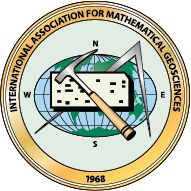23rd Annual Conference of the International Association for Mathematical Geosciences
News
2025-July-07: Abstract acceptance decisions are finalized!
Please log in to your user account and check under "My submissions" the acceptance decision.
Welcome
It is our great honor to welcome you to Zhuhai in 2025. We are looking forward to workshops, excursions and field trips, presentations, and scientific and social discussions. The thematic core of the conference will circle around Data-driven Discovery in Geosciences. We therefore wish to highlight the important role of big data and artificial intelligence on the transition of Earth system science to a data-intensive paradigm, and should be communicated across scientific boundaries.
Key Topics
- Artificial Intelligence: A new paradigm for geoscience research
- Big data and geoscience knowledge graphs
- Cloud computing and geoscience data analysis
- Compositional Data Analysis
- Computational Geodynamics
- Deep-time Digital Earth
- Extreme geological events and geoscience big data analytics
- Education of next generation mathematical geoscientists
- Fractal/multifractal modelling and its application
- Geoinformatics
- Geostatistics
- Geological process modelling and simulation
- Geoscience big data platform and computing power
- Hydrology and Hydrogeology
- Hyperspectral methods
- Machine Learning
- Mathematical geoscientific contribution to global sustainable development
- Predictive mapping in geosciences
- Prediction and assessments of resources in frontier regions
- Quantitative solutions for global change
- Remote sensing
- 3D visualization and virtual reality for geoscience

